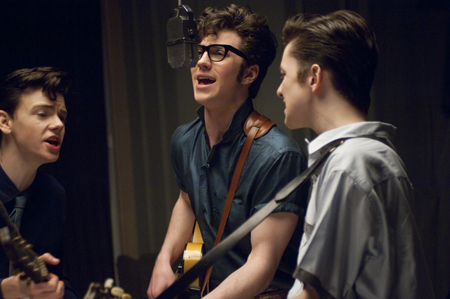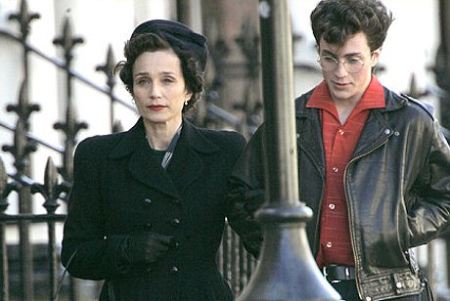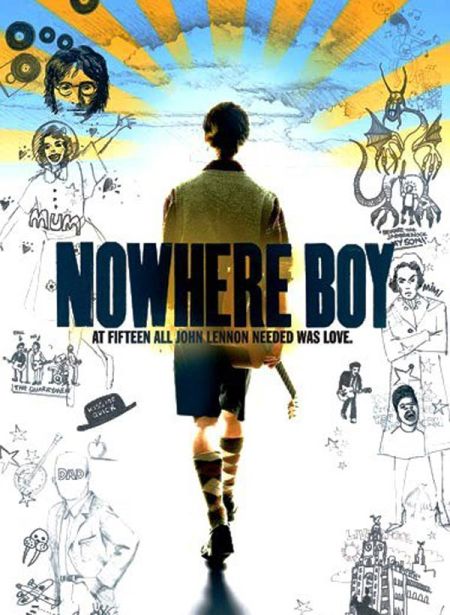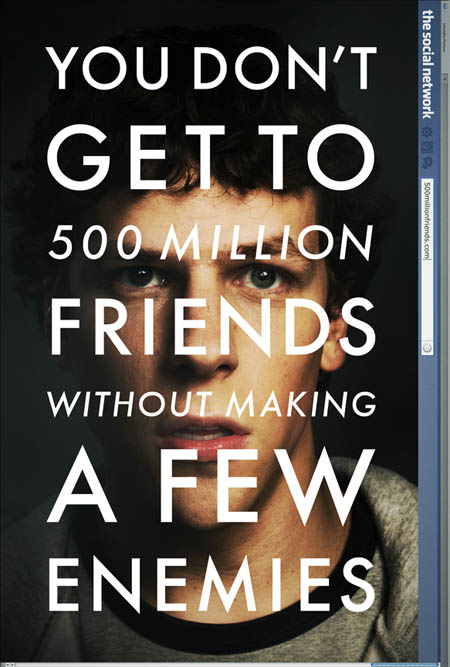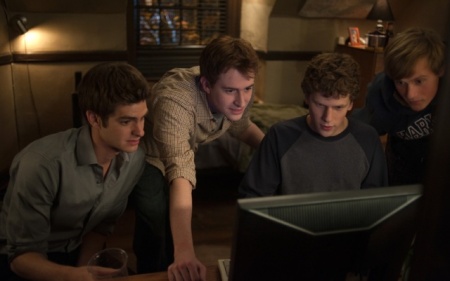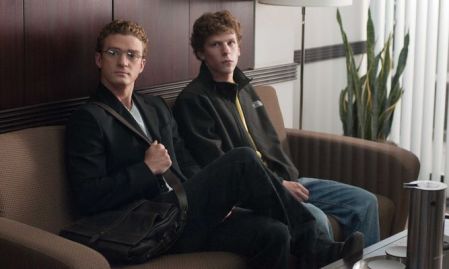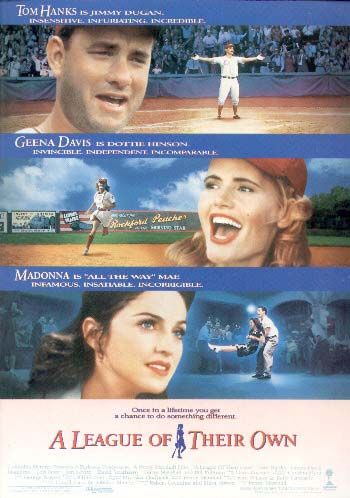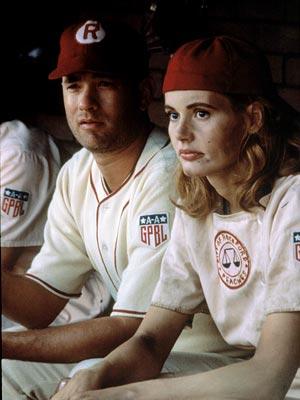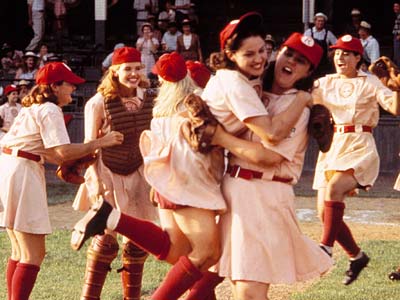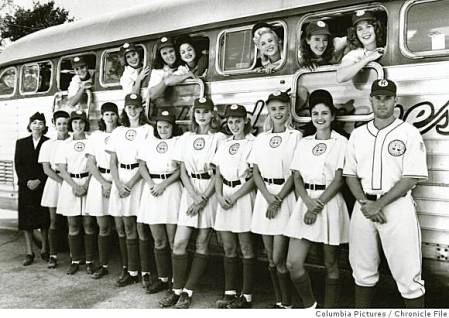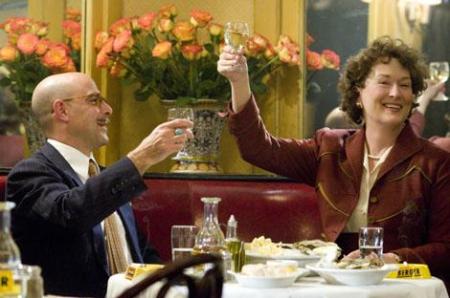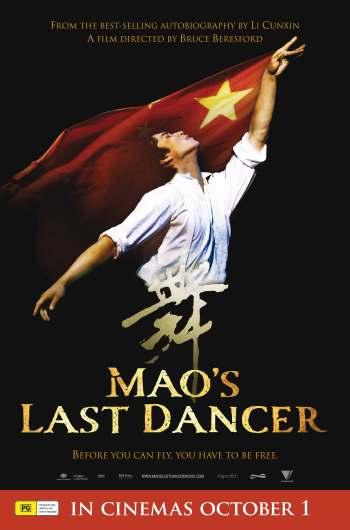
Mao’s Last Dancer is based on the best-selling autobiography by Li Cunxin.
The film opens with Li (Chi Cao) arriving at Houston, Texas, then flashes back to 1972. Here Li is an 11-year-old in the Shandong province of China. The country is floundering under Communism; his family are peasants, and there is hardly enough food to go around. Life is hard when there are seven children to support. His Dia (his father, played by Wang Shuangbao) tells his the parable of a frog stuck in a well who longs to escape to the beautiful world beyond. Li feels as though he, too, is a frog stuck in a well. His life changes when representatives from the Beijing Dance Academy come to his school. The representatives almost leave, but the young teacher points out Li at the last moment. This twist of fate drastically changes his life. He progresses through the try-outs and wins a full scholarship to the school. He has been given an amazing opportunity, and he is a hero in his village, yet young Li doesn’t want to leave his family, especially his beloved Niang (his mother, played by Joan Chen). She helps him see how lucky he is and that this is his great chance to escape the poverty – to escape the well. Li initially hates the academy, and he longs for home. Eventually, though, he finds the enjoyment in ballet.
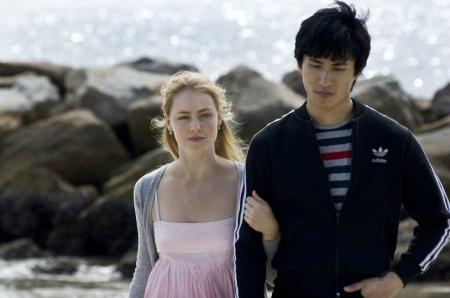
I don’t want to give away too many plot points, though you will already know the story if you have read the book or seen the trailer (why must they always ruin the movie with the trailer?!) This is an amazing, almost unbelievable story about fate and triumph and family and love – a true rags-to-riches.
The dancing, choreographed by Graham Murphy, is simply spectacular, and it doesn’t completely take over the storyline, which should please more sceptical members of the audience. The actors are all adequate but there are no stand-out performances here. Kyle MacLachlan and Bruce Greenwood are the most recognisable cast members. Mao’s Last Dancer had a seemingly decent budget but it was actually quite small if you take into account the sheer breadth of the story. Beresford’s decision to shoot in Sydney instead of Houston may not bother most members of the crowd but it annoyed me, especially because the building used for Li’s house in Houston is actually in my suburb. The crowd scenes obviously had about 20 extras, and there is one really bad sequence with a warrior shooting an arrow…I laughed out loud, and it wasn’t supposed to be funny. The film is quite clichéd, and the suspenseful moments aren’t particularly suspenseful.
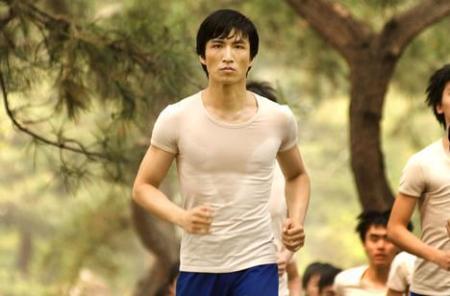
I’ve read the book, so comparisons are unavoidable. I would have to have liked to have seen more screen time dedicated to his early days with his family and also at the dance academy. In the book you really got a chance to know and love the family, but the opening of the film moves extremely quickly. I just felt there was way too much time dedicated to his time in Houston, which is arguably the least interesting part of his life story. The film begins in a non-linear fashion, going back and forward between China and America, but then becomes linear somewhere along the way. This bothered me. Jan Sardi said that they started the film in America because they thought they would alienate audiences if the first 20 minutes of the film was entirely Chinese. I wouldn’t have minded. As it is, the structure of the opening forty minutes or so is quite jarring.
I don’t think this story has been taken to its full potential. This could have and should have been an incredible film, because Li Cunxin’s life has been incredible. Mao’s Last Dancer falls a little flat, which is so unfortunate. However, it is still a really enjoyable film, and the emotion is really there, particularly between Li and his parents. I was so moved by the ending, I absolutely bawled my eyes out in the last few scenes, I seriously did.
The film has taken more than $13 million at the box office in Australia so far, the highest grossing Australian film of the year at the local box office. I think this just shows that Australian films can be successful when they deal with universally themes, rather than stories with very narrow appeal (they are usually either dark drug dramas or stupid comedies). This is a film that the whole family can really enjoy, and the cultural diversity ensures a wide audience. I’d recommend this film to anyone, but you should also read the book afterwards because there is so much more to love about Li Cunxin that isn’t touched on in the movie. I wish this had been an even better film.
My rating: 



